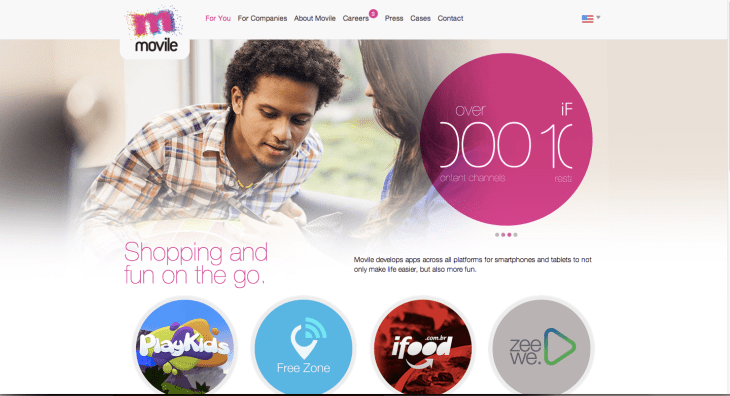The experiment with e-commerce and delivery services that’s taking hold in the U.S. actually may see more traction in emerging markets, where big retailers had struggled because of infrastructure and logistics issues. Latin American and Asian e-commerce players are angling to become the dominant players in retail with same-day delivery for goods and services that were traditionally sold in stores.
In Brazil, no company is doing more than the mobile software and services developer Movile, which raised $55 million to finance its grand plan to join e-commerce with delivery services to make the shopping experience better and easier for everyone.
Already backed by the South African media and investment giant Naspers (which is also an investor in Tencent), Movile added a new backer in Innova Capital with its $35 million Series D round of funding. The Sao Paulo-based company also picked up a $20 million commitment from FINEP — Brazil’s Funding Authority for Studies and Projects within the Ministry of Technology.
The company, whose businesses include the mobile entertainment and educational application developer, PlayKids; the hotspot locator and internet service provider, FreeZone; iFood, a food delivery service; and the video network, ZeeWee, will use some of the cash to expand its PlayKids operations internationally, along with rolling out more delivery services, according to chief executive officer Fabricio Bloisi.
“This round is to pursue our online and offline strategy,” says Bloisi. The company has started the process with its iFood delivery service, but Bloisi says his vision extends far beyond just the food business.
Perhaps best-known for its PlayKids app (which will receive $10 million from the latest cash infusion) Movile has 30 million monthly active users, who perform 50 billion transactions a year on the company’s service.
The company began with content and payment applications for mobile phones and feature phones 15 years ago and has now expanded to the delivery service business. “If you can sell through one click on the mobile phone and you can have it delivered in the next five hours, that’s a powerful service,” says Bloisi. For him, the benchmarks for his new service are Yelp and Google’s Shopping Express service. “We want to build the Brazilian Yelp,” Bloisi says.
But the vision is actually broader. “We are going to buy startups that do local delivery and push users to get their phones to buy anything close to them, from movie tickets, to drug store items to food, and have it delivered in the next few hours,” says Bloisi.
That vision is already paying off with iFood. The company is on track to deliver 3.5 million meals in 2014, with 60% of its orders coming from the company’s smartphone application.
Growth rates in Brazil are encouraging the company’s strategy, with roughly 106% compounded annual growth in mobile smartphone usage, according to data from the company. As part of its growth strategy, the company is also looking to woo top talent away from large U.S. tech companies. In the past few months it managed to poach former Apple Senior Designer Everaldo Coelho, and will look to add more U.S. and Latin American talent to its team, the company said.
If the U.S. is one source of inspiration for Movile’s chief executive, then China is another. “Our big benchmarks are the Chinese companies,” says Bloisi. “They are consolidating all kinds of services and distribution. We want to take this strong action in Latin America. From entertainment, to grocery items and food, and other services. You can get things delivered to you in one or two hours.”
